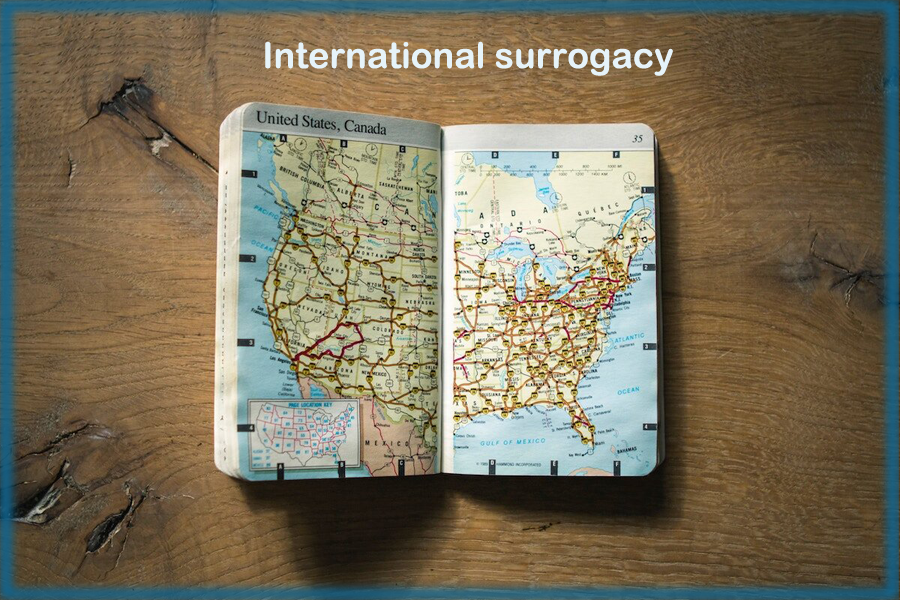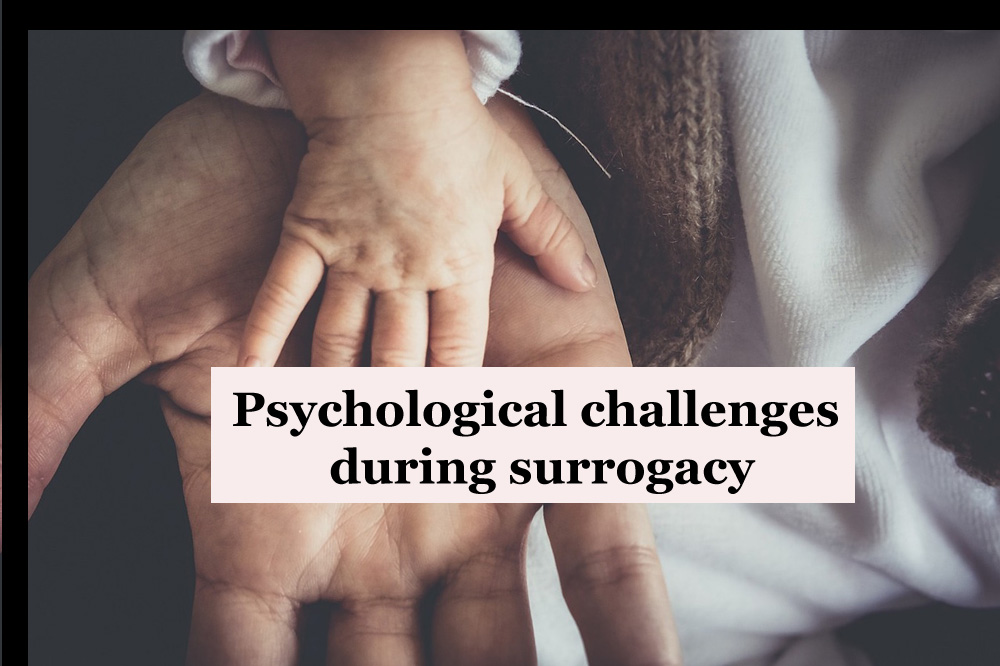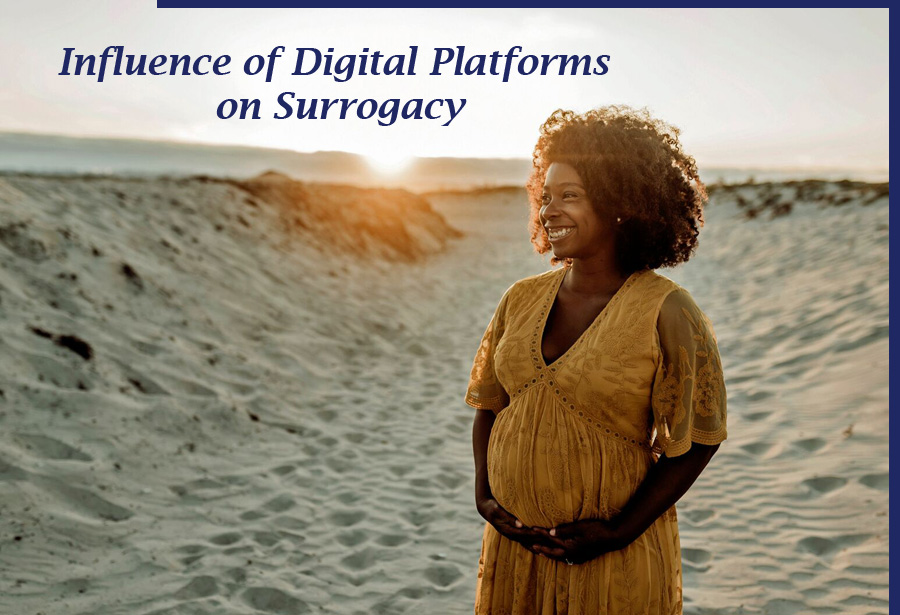Language barriers during International surrogacy: How to deal with them
We all know about the various advantages and rewards of international surrogacy. Yet, there is hardly any discussion about the challenges that one may come across in this pursuit of parenthood. That said, a language barrier may come your way while you enter a new country in the hope of achieving parenthood.
Also, to ensure that everyone involved in a surrogacy process understands each other and the process, expectations, and subtle emotional aspects involved, communication is essential. These all-inclusive methods can help break down Language barriers during International surrogacy and make the process more seamless.
How to deal with Language barriers during International Surrogacy
1. Make Use of Expert Translation Services
It is surely challenging to get along with the language barrier within any country as a part of your surrogacy journey. Also, it is impossible to exaggerate how crucial accurate and transparent communication is to the surrogacy process. That said, by using professional translation services, you can make sure that everyone understands contracts, legal documents, and medical information. Moreover, to ensure the highest degree of accuracy and confidentiality, look for translation services that specialize in legal and medical fields.
2. Make Use of Technology
Technology has a role to play in our daily lives and the same goes true when it comes to removing language concerns during surrogacy. Also, smoother daily communication between intended parents and surrogates, as well as during meetings with medical professionals and legal advisors, can be facilitated by real-time translation apps and devices. Even though these resources are priceless, it’s important to keep in mind that they might not always be 100% accurate. For important communications, therefore, they should be used in addition to, not in place of, expert translation services.
3. Make contact with a Multilingual Clinic or Agency
You may also look for several multilingual agencies that offer various services in order to streamline your communication process during your stay in a new country. Moreover, these companies frequently employ multilingual staff members or have access to interpreters who can help during appointments and meetings. In order to guarantee that everyone understands everything, they can also provide contracts and paperwork in the original tongues of the surrogate and the intended parents.
4. Acquire the Fundamentals of the Language

5. Training in Cultural Sensitivity
Every country comes with certain cultural and traditional beliefs that they are very sensitive to. So, you have to be very careful in this regard while proceeding with your surrogacy journey. So, we can say that cultural and language barriers are frequently entwined. Taking part in cultural sensitivity education or training can assist intended parents in comprehending the customs, communication patterns, and social mores of the culture of their surrogate. This comprehension can help to build a stronger bond between all parties involved and encourage empathy and patience in communication efforts.
6. Frequent Face-to-Face Consultations with Interpreters
Online consultations are helpful, yet nothing can replace the proper face-to-face interactions to help you with language barriers. Hence, you must look to set up face-to-face meetings with your surrogate whenever feasible, with the assistance of a qualified interpreter. These meetings can add a more intimate touch and facilitate better understanding through body language and other nonverbal cues. Even sporadic in-person interactions can deepen the relationship between intended parents and surrogates and add meaning to the surrogacy process.
-
Clearly Define Communication Procedures
Always maintain clear communication with every party involved in the surrogacy procedure. That way, you can look forward to the desired results in every step. That said; clearly define the protocols for communication early on in the surrogacy process. Moreover, select the preferred communication channels (email, phone calls, video chats), how often updates will be sent, and who will be in charge of helping with translation and interpretation. A methodical approach can reduce miscommunications and guarantee that all parties are informed at all times.
8. Medical and Legal Interpreters
Professional language interpreters have a role to play in the general communication process in a new country. Yet, they may not replace the medical interpreters with more knowledge regarding the medical aspects. So, look for certified legal and medical interpreters for important meetings, particularly those involving contracts or medical procedures. These experts have received training in comprehending technical language and guaranteeing precise, understandable communication. It is imperative that you take this action to prevent misunderstandings that could have serious consequences.
-
Multilingual Documentation
There may be a chance when you may find it hard to understand the matter listed within a certain medical document or paper. Also, the surrogacy contract may be hard to understand at times due to the language issues. Make sure that all pertinent paperwork, such as consent forms, contracts, and medical records, is available in several languages. In many jurisdictions, legal standards mandate that documents be provided in a language that all parties fully understand. This practice not only promotes better understanding but also complies with those standards.
10. Look for support networks at every step
The support networks to eliminate language issues may be of great help during your pursuit of surrogacy. So, think about reaching out to support groups or networks made up of people who have experienced or are currently undergoing international surrogacy. They can share resources, give helpful counsel, and offer emotional support. Gaining knowledge from their experiences can help you overcome obstacles like language barriers and other difficulties.
Final words
Language barriers aren’t the only concern while you look forward to international surrogacy. Still, it is an important aspect of your surrogacy journey within a new country. That said, the path of international surrogacy is paved with challenges, hope, and expectation. Of these, the language barrier is one of the biggest obstacles that needs to be overcome with careful planning and proactive measures.
Intended parents can drastically lower communication barriers by utilizing technology, multilingual agencies, professional translation services, and individual efforts toward language and cultural understanding. Additionally, it is possible to protect the interests and well-being of all parties involved by stressing the need for clear communication protocols and making sure that documentation is available in multiple languages.





 The importance of self-care is quite imperative during every aspect of life and not just a surrogacy program. That said, self-care is basic for keeping up mental focus and health. For surrogates, this implies taking care of your body through proper nutrition, standard workout, and adequate rest.
The importance of self-care is quite imperative during every aspect of life and not just a surrogacy program. That said, self-care is basic for keeping up mental focus and health. For surrogates, this implies taking care of your body through proper nutrition, standard workout, and adequate rest. Information is the key in today’s era. Whereas remaining educated is important, overconsumption of information and data can lead to data over-burden and increased uneasiness. This is where you must constrain your research to trustworthy sources and avoid delving as well profoundly into online groups or forums that will help you avoid unnecessary issues. Instead, count on your surrogacy agency and medical experts for precise and up-to-date information.
Information is the key in today’s era. Whereas remaining educated is important, overconsumption of information and data can lead to data over-burden and increased uneasiness. This is where you must constrain your research to trustworthy sources and avoid delving as well profoundly into online groups or forums that will help you avoid unnecessary issues. Instead, count on your surrogacy agency and medical experts for precise and up-to-date information.

 While surrogacy has proved its effectiveness in helping numerous couples reach parenthood, it has also led to the development of diverse family structures. At the same time, it also allows people and couples from different backgrounds and circumstances to fulfil their dreams of having children. Moreover, for same-sex couples, surrogacy offers a way to parenthood that includes a genetic connection to at least one partner. Now this is something that other alternatives like adoption may not offer.
While surrogacy has proved its effectiveness in helping numerous couples reach parenthood, it has also led to the development of diverse family structures. At the same time, it also allows people and couples from different backgrounds and circumstances to fulfil their dreams of having children. Moreover, for same-sex couples, surrogacy offers a way to parenthood that includes a genetic connection to at least one partner. Now this is something that other alternatives like adoption may not offer. In any case, surrogacy’s transformative shift isn’t without its challenges. Moreover, the emotional journey for both
In any case, surrogacy’s transformative shift isn’t without its challenges. Moreover, the emotional journey for both 



 The
The 


 The rise in surrogacy due to climate change moreover has international suggestions. That said, It can compound imbalances, as surrogacy is regularly a costly aspect, making it available fundamentally to those with good money-related sources. Also, the financial viewpoint can make a distinction between those who can bear surrogacy and those who cannot, helping complicate the current perplexing scene of reproductive rights and understanding.
The rise in surrogacy due to climate change moreover has international suggestions. That said, It can compound imbalances, as surrogacy is regularly a costly aspect, making it available fundamentally to those with good money-related sources. Also, the financial viewpoint can make a distinction between those who can bear surrogacy and those who cannot, helping complicate the current perplexing scene of reproductive rights and understanding.

 Social media also plays a key role in forming recognitions and desires about surrogacy. That said, stories shared by surrogates or intended parents on platforms like Instagram or Facebook frequently highlight the positive elements of surrogacy, now and then portraying an idealized picture. Whereas these stories can be motivating, they can also make improbable desires about the surrogacy journey. Hence, it’s critical for people considering surrogacy to recognize that each journey is one of a kind and may not continuously balance with the accounts showcased on social media.
Social media also plays a key role in forming recognitions and desires about surrogacy. That said, stories shared by surrogates or intended parents on platforms like Instagram or Facebook frequently highlight the positive elements of surrogacy, now and then portraying an idealized picture. Whereas these stories can be motivating, they can also make improbable desires about the surrogacy journey. Hence, it’s critical for people considering surrogacy to recognize that each journey is one of a kind and may not continuously balance with the accounts showcased on social media.
 Through social media, stories and experiences from diverse social backgrounds are shared, contributing to a more comprehensive understanding of surrogacy. In the end, this global perspective can be edifying for those considering surrogacy, helping them understand this practice totally in a different social and legal setting.
Through social media, stories and experiences from diverse social backgrounds are shared, contributing to a more comprehensive understanding of surrogacy. In the end, this global perspective can be edifying for those considering surrogacy, helping them understand this practice totally in a different social and legal setting.

 Contracts play a key role in the implementation of
Contracts play a key role in the implementation of  Striking a balance between reasonable surrogate compensation and moral contemplations is highly significant. Moreover, compensation should recognize the surrogate’s commitment without commercializing the process.
Striking a balance between reasonable surrogate compensation and moral contemplations is highly significant. Moreover, compensation should recognize the surrogate’s commitment without commercializing the process.
 Inspirations behind becoming a Surrogate: Understanding why the surrogate has chosen surrogacy is very important. Moreover, it makes a difference in checking her commitment and seriousness for the surrogacy program. For example, in the case of Anne, a surrogate in California, her inspiration stemmed from witnessing a relative’s battle with infertility, which convinced the intended parents about her compassion and commitment.
Inspirations behind becoming a Surrogate: Understanding why the surrogate has chosen surrogacy is very important. Moreover, it makes a difference in checking her commitment and seriousness for the surrogacy program. For example, in the case of Anne, a surrogate in California, her inspiration stemmed from witnessing a relative’s battle with infertility, which convinced the intended parents about her compassion and commitment. On the other side, the agencies can make aware the parties of the background of the other party. That way, both the intended parents and the surrogate will have a starting point to talk about. With all the right details and data about each other, the conversation can really go smoothly and be fruitful for everyone.
On the other side, the agencies can make aware the parties of the background of the other party. That way, both the intended parents and the surrogate will have a starting point to talk about. With all the right details and data about each other, the conversation can really go smoothly and be fruitful for everyone. Need for Control: One of the biggest noteworthy psychological challenges during surrogacy is the feeling of need for control. Intended parents mostly aren’t aware of the minutes of the surrogacy procedure.
Need for Control: One of the biggest noteworthy psychological challenges during surrogacy is the feeling of need for control. Intended parents mostly aren’t aware of the minutes of the surrogacy procedure. Counselling: Looking for support from experts specializing in fertility and surrogacy can give intended guardians adapting techniques to oversee their stress and uneasiness. Moreover, it can help them deal with all such stressful moments and phases in their surrogacy journey.
Counselling: Looking for support from experts specializing in fertility and surrogacy can give intended guardians adapting techniques to oversee their stress and uneasiness. Moreover, it can help them deal with all such stressful moments and phases in their surrogacy journey.